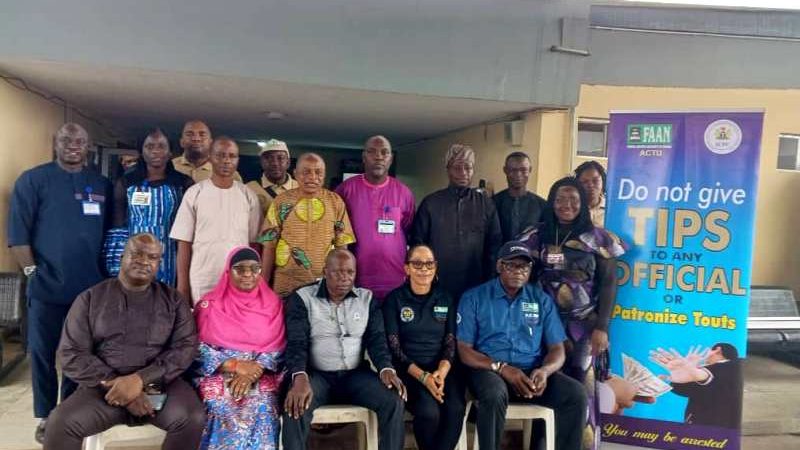Stakeholders Make Case For Local Refining Of JetA1 At NATCA Conference
A stakeholder in Nigeria’s aviation industry, Prof. Anthony Kila says it is important for aviation leaders to come together and ensure aviation fuel is refined in the country.
Speaking in Ibadan, Oyo State on Wednesday as Chairman at the opening of the 51st Annual General Meeting (AGM) and Conference organized by the Nigerian Air Traffic Controllers’ Association (NATCA) with the theme: ‘Energy Crisis and The Aviation Industry: A Quest for Sustainable Growth’, Kila lamented that the failure of the government to refine the Jet A1 product locally was negatively affecting the economy, insisting that the aviation industry should be seen as an essential infrastructure by the government, rather than being treated as elitist.
”’The government can look at establishing a bank of aviation, which will attract other players into the sector, especially investors. Aviation leaders should come together and ensure aviation fuel is refined in the country,” he said, explaining that apart from telecommunications industry, aviation was the next to connect humans and cargo and the government should not allow the energy crisis to stunt growth in the sector.
Kila emphasized that the more passengers that patronize the sector, the more revenues for the players in the industry and the country at large.
He added: ‘We should create an aviation sector that is able to create movement for commerce. The issue of energy crisis should not be allowed in the industry. If we want to make aviation industry to be viable, we should look at commerce. He equally craved more recognition for ATCs in the country, saying they play critical roles in ensuring safety on the ground and in the air
Participants at the conference called on the Federal Government to prioritize local refining of Jet A1 (aviation fuel) in a bid to stem the continuous rise of the price of the product in the country.
The government was also asked to provide special funding to the aviation industry in order to address the issues of foreign exchange and other challenges facing organizations in the sector
In his remark, Capt. Fola Akinkuotu, the immediate past Managing Director of the Nigerian Airspace Management Agency (NAMA), declared that inasmuch as aviation fuel has continued to be imported into the country, its price and airfares would continue to skyrocket.
Akinkuotu lamented that barely three months ago, one-way ticket in the business class to Abuja from Lagos was barely N50, 000, but said the airfare had risen to N150,000 in the local market today. He challenged airline operators to acquire modern equipment to address the challenge of ageing aircraft, hoping that the planned aircraft leasing company by the government would help to resolve the challenge.
He however, said that adoption of modern technologies by government and other organizations in the world would help to address some of the challenges presently bedeviling growth in the sector.
”There should be appropriate financial institution where the airlines can lend money at single digit interest rates to acquire modern aircraft. If the current challenges in the sector are not properly addressed, the issue of ageing aircraft will remain.
”Also, we will continue to pay more for flights. Three months ago, a business class ticket Lagos-Abuja was just N50,000 and it rose to N75,000, but today, it is N150,000 for the same ticket. The government should address the challenges to save the sector,’” Akinkuotu added.
Earlier, Mr. Abayomi Agoro, the President of NATCA, regretted that energy crisis in Nigeria had gotten worse in recent months. He explained that with the challenge of insecurity and bad roads, aviation industry needed effective and efficient handling by all. He further called for the confirmation of Engr. Matthew Pwajok, the Acting Managing Director, NAMA as the substantive helmsman in the agency.







